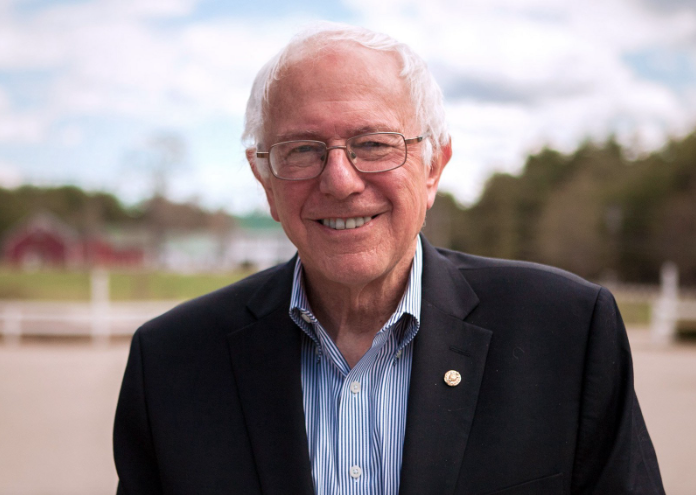Does Bernie Sanders Have A Chance In 2020? Yes
Bernie Sanders is still a candidate to keep your eyes on.
February 25, 2019
“Bernie! Bernie!”
Remnants of millennials rallying to “Feel the Bern” in the 2016 election have come back into focus as Bernie Sanders dropped his name into the hat for the upcoming 2020 presidential election. On Tuesday, Feb. 19, Sanders announced he would enter into a crowded presidential race.
“Together, you and I and our 2016 campaign began the political, revolution,” he said in an email to his supporters. “Now, it is time to complete that revolution and implement the vision we fought for.”
When asked in an interview on CBS how the 2020 campaign would be different from 2016 he said: “We’re gonna win.”
Following his announcement, Sanders’ campaign gained an abundance of financial support. Within 24 hours, his camp raised $6 million from approximately 225,000 potential voters.
To put this in perspective, the next closest camp, Kamala Harris raised $1.5 million in the 24 hours following her announcement. This is important as while Sanders is fighting to combat financial inequality, we all know dollar signs lead to advertisement time and burns campaign messages into voter’s minds.
While many critics are calling his ideas that seemed radical in 2016 old news, he did not need a presidential title for his message to make an impact. He does not just say he wants to see a $15 minimum wage.
Sanders shamed Amazon last year into raising its minimum hourly wage to $15 an hour by debuting legislation named after Jeff Bezos that would have required large companies to pay back the government if their employees still required government benefits to make ends meet.
Saying and doing are two very different things and Sanders has the experience and savvy to see his message through. He tells Americans buried in debt by student loans that college tuition can once again be an inconsequential expense. Sanders expresses the need to provide healthcare to all “as a right, not a privilege, through a Medicare-for-all program.”
His campaign takes aim at reducing the ludicrous rate of incarcerated African Americans by ending a shameful “war on drugs,” eliminating private prisons and bringing about major police department reform.
Sanders calls for comprehensive immigration reform that would grant immediate legal status for young people eligible for the Daca program and humane policy for those at the border seeking asylum.
All of these ideas, which were proposed in 2016, have come under the spotlight with the Trump administration. Sanders’ proposals were once viewed as radical and have now been adopted by the majority of his running mates, both Democrat and Republican. But why would you vote for a copy cat when you could vote for the original?
After four years of refining his message, Sanders’ grassroots movement looks to be supersized in the 2020 election.
The once “kooky” and “radical” junior senator from Vermont has come a long way and is burning a path to a better future one voter at a time.
His campaign infrastructure heading into primaries the last election was unmatched in which he received $77 million in donations from contributors giving less than $200 in his March 2016 FEC filing alone which was 188,613 pages long.
This time around, Sanders will have far better scaffolding to build support from and looks to be the far ahead leader in early polling.




